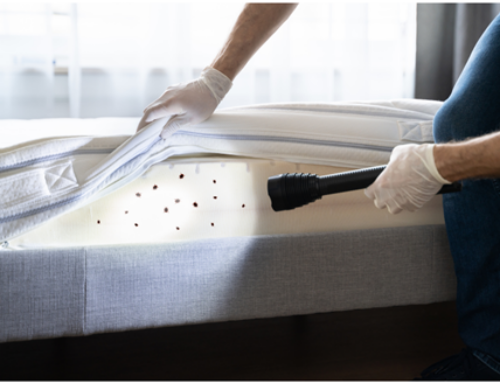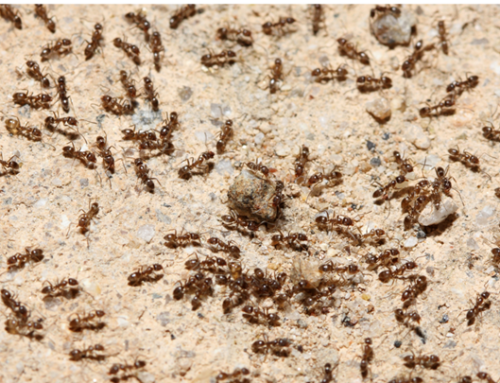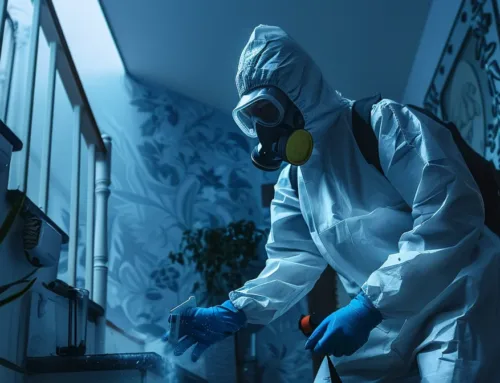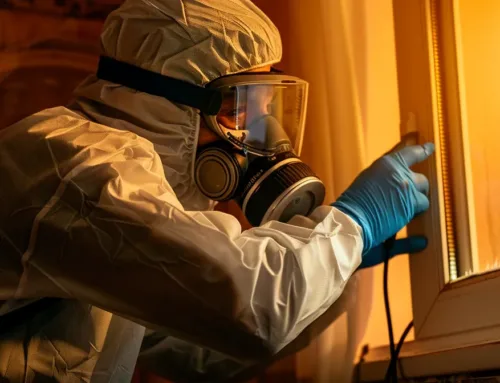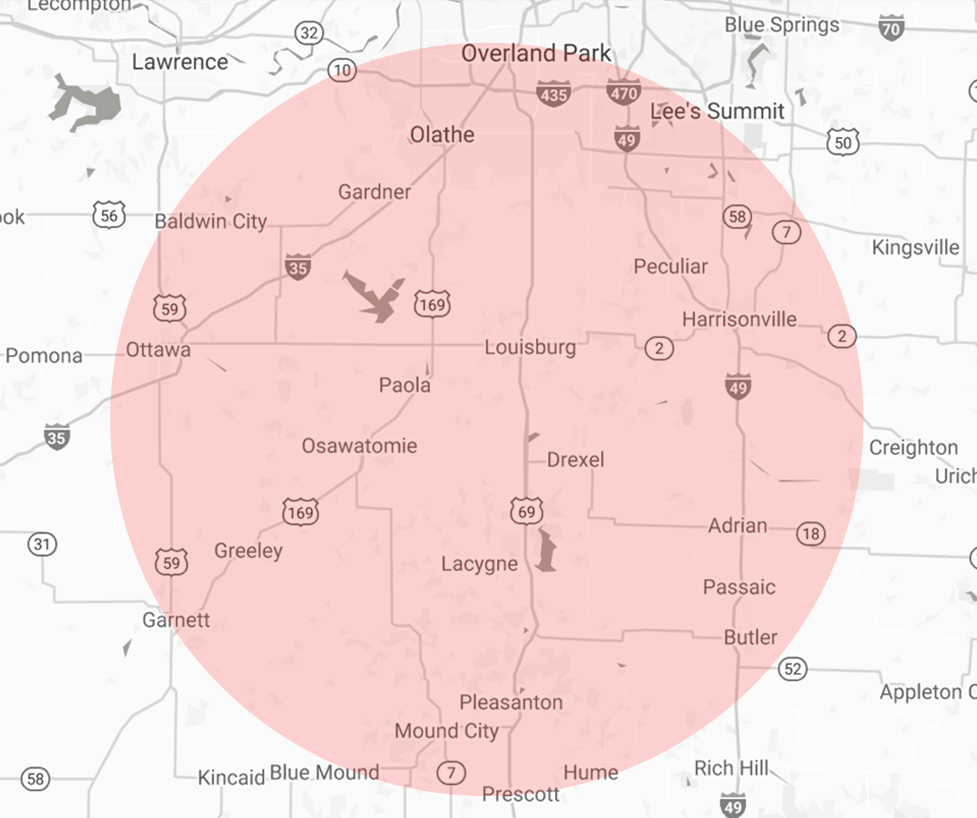Experts on Pest Control in Miami County Give 7 Tips for Keeping Mice Out of Your Kansas Home
Despite their endearing appearance, mice are a nuisance. The presence of mice in an area inhabited by humans has the potential to provide a health risk to those people. Salmonella, Pasteurella, Giardia, and even the frightening-sounding (but infrequent) Lymphocytic Choriomeningitis Virus, or LCMV, are just some of the bacterial diseases, viruses, and parasites that mice may carry, according to the Centers for Disease Control and Prevention (CDC).
And it goes without saying that mice are notorious for the destruction caused by the chewing that they do. Mice have no compunction about gnawing through whatever you own and making their homes in it, whether it be insulation or antiquities. Basically, they’ll chew on anything, anywhere!
According to the Center for Wildlife Damage Management, mice prefer to nest in close proximity to heat sources such as hot water heaters, pilot lights, or compressors. Mice frequently wreak havoc on major electrical equipment by nibbling on the wire, which can cause short circuits and poses a risk of starting a fire.
When it comes to protecting your home against rodents, Miami County pest control experts say mice can squeeze through gaps as small as a dime. Mice may enter your home at any time of the year; however, they are the most active in their attempts to do so during the winter months when they are looking for food and a place to escape the cold.![]()
The question now is, what can you do to protect your house and property from the wrath of these little but destructive insects? The following is a list of thirteen things that may be done to keep mice out of your home.
#1 Experts on Pest Control in Miami County Suggest Establishing a No-Go Zone.
Eliminate places for mice to hide and sources of food, and then bring in mice’s natural enemies to make the area surrounding your home intolerable for the rodent. To reduce the amount of cover they have near the home, step one is to prune any nearby trees and shrubs.
![]()
#2: Experts on Pest Control in Miami County Suggest Removing Unnecessary Items Located Close to the Home.
For example, stacks of firewood, equipment that is covered with tarps, and heaps of mulch or leaves. The United States Environmental Protection Agency recommends that you temporarily cease feeding the birds (or switch to using just huskless meal) in order to reduce the amount of food that is left behind for rodents while you are trying to get rid of a mice infestation.
#3: Experts on Pest Control in Miami County Suggest Containers That Can’t Be Opened by Insects or Rodents for Grass Seed and Bird Seed Storage.
You should place outdoor garbage cans on wood platforms that are 6 inches high (such as standard pallets), and then use bungee cords or other types of straps to hold the lids.
#4: Experts on Pest Control in Miami County Suggest Conducting a Thorough Inspection of Your Home’s Exterior.
This is to identify any potential entry points for mice. Check the foundation, basement entry, and siding joints in addition to the roofline, gables, and eaves. Copper scrub pads or steel wool can be used to plug any small holes, after which caulk or expanding foam sealant can be applied over the top.
Larger openings should be covered with metal sheeting, while vents should be covered with a lath screen or hardware cloth (thin-gauge wire mesh fabric).
![]()
#5: Experts on Pest Control in Miami County Suggest Reducing Clutter in Your Home; Get Rid of Unnecessary Items.
For example cardboard boxes, bags, newspapers, blanket piles, cartons, and open containers of infrequently used items, as suggested previously. These provide ideal nesting materials in addition to hiding places for the animal.
Sugary foods, grains, rice, and cereal are some of the rodents’ favorites to eat. If at all feasible, put food from the pantry in containers made of metal, glass, or sturdy plastic that have tight-fitting lids.

https://tricopest.com/
#6 – Experts on Pest Control in Miami County Suggest Since Mice are Omnivores, They Eat All Kinds of Foods.
Mice are not picky about the components of the food they eat. You should clean the area around the bowls your pet uses every day, and you should also shift the pet food from its original packaging into containers that are more durable.
Consider owning a cat. Fortuitously, the beliefs that dryer sheets and certain aromas repel mice are not established; nonetheless, mice are really repelled by the smell of cats, which they fear. Even if your cat is not a particularly excellent hunter, just having it around will discourage mice from making your home their home.
![]()
#7 – Experts on Pest Control in Miami County Suggest Making it a Habit to Look for Signs That Mice Have Invaded Your Space.
The Centers for Disease Control and Prevention (CDC) suggests doing a search behind appliances such as refrigerators, stoves, and cabinets; beneath sinks and washing machines; behind appliances such as hot water heaters and furnaces; in attics and crawl spaces; and so on. Call the experienced exterminators at Tri-County if you see signs of mouse activity and require aid in getting rid of them. They are quite skilled in this field.
![]()
20 Years Protecting Our Customers in Linn and Miami County Pest Control
At Tri-County Termite & Pest Control, we make sure your home is free of those pesky unwanted guests. If you’re ready to keep all the bugs and critters out of your home for good – give us a call today!
Contact Tri-County for Your Miami County Pest Control Needs
If you want an expert for termite control In Miami County or bed bug treatment in Miami County, contact Tri-County Termite & Pest Control. We are also your source for spider control and ant removal in Miami County. We proudly serve La Cygne, Louisburg, Paola, Greeley, and many other neighboring communities. We take pest control to another level by serving the needs of our valued customers.
Give us a call today at (913) 757-3636 or contact us online for more information. We look forward to assisting you!




